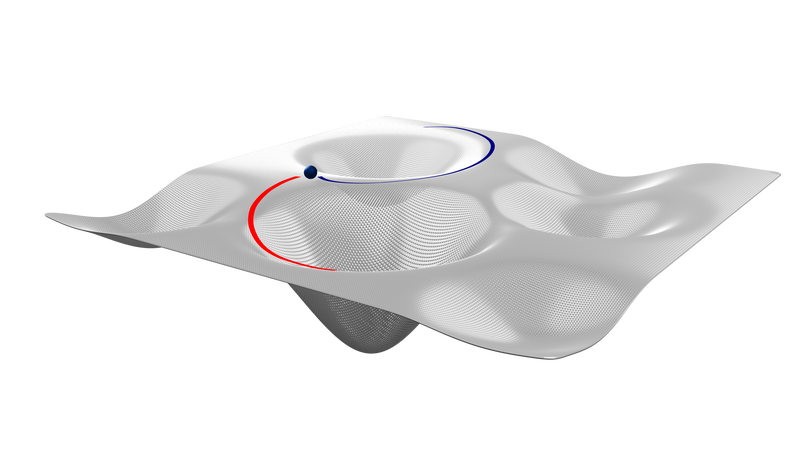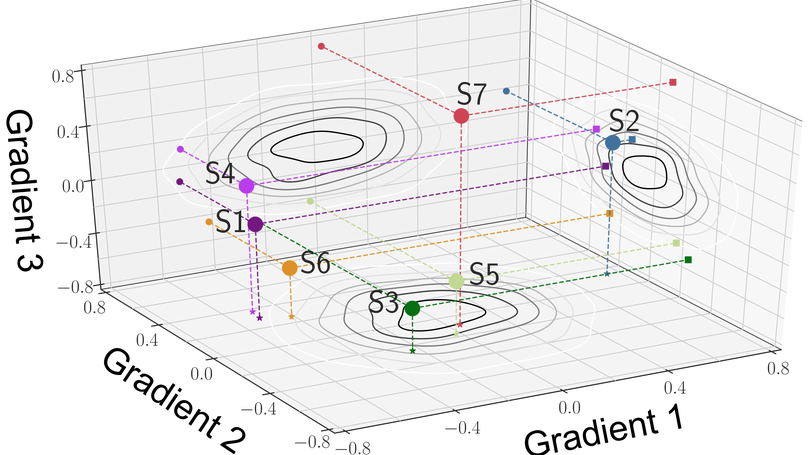Biography
I am an Assistant Professor at the School of Psychology, University of Sussex. My research investigates how large-scale brain dynamics support ongoing thoughts, with a focus on functional brain hierarchy, neural information flow, attractor states, and trait–state interactions. I am particularly interested in how these mechanisms relate to everyday experience, learning, and dispositional traits, as well as their relevance for mental health.
My lab combines multimodal neuroimaging (structural, functional, diffusion MRI, E/MEG) with behavioural testing and computational modelling. We use both static and dynamic analysis approaches, including machine learning methods, to characterise how patterns of brain activity unfold over time and shape conscious experience.
Originally from Veria, Greece, I studied physics at the Aristotle University of Thessaloniki before moving to the UK to pursue an MSc in cognitive neuroscience at the University of York. I subsequently worked as a research assistant in Prof. Jonathan Smallwood’s lab before being awarded a studentship for a PhD under the joint supervision of Prof. Smallwood and Prof. Elizabeth Jefferies. During my PhD, I also contributed to a pilot neuroimaging study on immersive experiences led by Prof. Alex Wade. I then held two postdoctoral positions: one in Prof. Smallwood’s lab, and a second within a collaborative neuroimaging project funded by the York–Maastricht Partnership, working with colleagues at YNiC and M-BIC.
At Sussex, I lead a research lab working with brilliant placement students, PhD, and early career researchers (ECRs), aiming to advance theoretical and empirical models of brain–behaviour relationships, particularly in relation to the stability and flexibility of dynamic cognitive states across time and context. I also supervise undergraduate, MSc, and PhD projects, and convene and teach modules in programming and cognitive neuroscience at both undergraduate and postgraduate level.
- Ongoing Experience
- Brain Connectivity
- Functional Hierarchy and Information Flow
- Neural Dynamics
- Neural and Behavioural Attractor States
- Trait-State Interactions
-
PhD in Cognitive Neuroscience and Neuroimaging, 2019
University of York, UK
-
MSc in Cognitive Neuroscience, 2014
University of York, UK
-
BSc in Physics
Aristotle University of Thessaloniki, Greece
Experience
- Investigating and teaching about the functional hierarchy of the human brain, information flow, neural trait-state interactions, as well as their associations with behaviour and ongoing experience.
- Working on a collaborative neuroimaging project funded by the York Maastricht Partnership
- Working on the ERC funded project titled “Not all minds that wander are lost: A neurocognitive test of mind-wandering state’s contribution to human cognition”
- Coordinating & running neuroimaging studies at full length, on the neural correlates of spontaneous thoughts:
- designing an experiment
- setting up scanning protocols
- coding behavioural tasks (PsychoPy)
- recruiting participants
- acquiring & analysing behavioural & neuroimaging data (fMRI, DWI, MEG)
- preparing manuscripts for publication
- presenting results at science meetings
- Developing data analysis pipelines in Python
- Analysing fMRI & MEG neuroimaging data from a clinical study on epilepsy
Featured Publications

Ongoing experiences are a defining feature of the human condition, encompassing the thoughts, feelings, and sensations that underscore how we experience the world and our subjective sense of self from moment to moment. In this review, we show how the Default Mode Network’s structural and functional properties make it uniquely suited to supporting ongoing experiences as a system capable of abstraction, integration, and flexibility. We chart recent methodological advances that use dimensionality reduction techniques to map both neural and experiential states, demonstrating that they are most powerfully leveraged when applied together across both domains. Building on these insights, we propose an attractor-state framework to capture how stable and flexible mental states emerge from complex brain dynamics. Finally, we discuss the implications of our framework for psychopathology, offering a dynamic systems perspective on the interplay between brain function, ongoing experience, and mental health.

When unoccupied by an explicit external task, humans engage in a wide range of different types of self-generated thinking. These are often unrelated to the immediate environment and have unique psychological features. Although contemporary perspectives on ongoing thought recognise the heterogeneity of these self-generated states, we lack both a clear understanding of how to classify the specific states, and how they can be mapped empirically. In the current study, we capitalise on advances in machine learning that allow continuous neural data to be divided into a set of distinct temporally re-occurring patterns, or states. We applied this technique to a large set of resting state data in which we also acquired retrospective descriptions of the participants’ experiences during the scan. We found that two of the identified states were predictive of patterns of thinking at rest. One state highlighted a pattern of neural activity commonly seen during demanding tasks, and the time individuals spent in this state was associated with descriptions of experience focused on problem solving in the future. A second state was associated with patterns of activity that are commonly seen under less demanding conditions, and the time spent in it was linked to reports of intrusive thoughts about the past. Finally, we found that these two neural states tended to fall at either end of a neural hierarchy that is thought to reflect the brain’s response to cognitive demands. Together, these results demonstrate that approaches which take advantage of time-varying changes in neural function can play an important role in understanding the repertoire of self-generated states. Moreover, they establish that important features of self-generated ongoing experience are related to variation along a similar vein to those seen when the brain responds to cognitive task demands.
Recent Publications
Contact
- t.karapanagiotidis@sussex.ac.uk
- School of Psychology, University of Sussex, Falmer, BN1 9QH
- DM Me